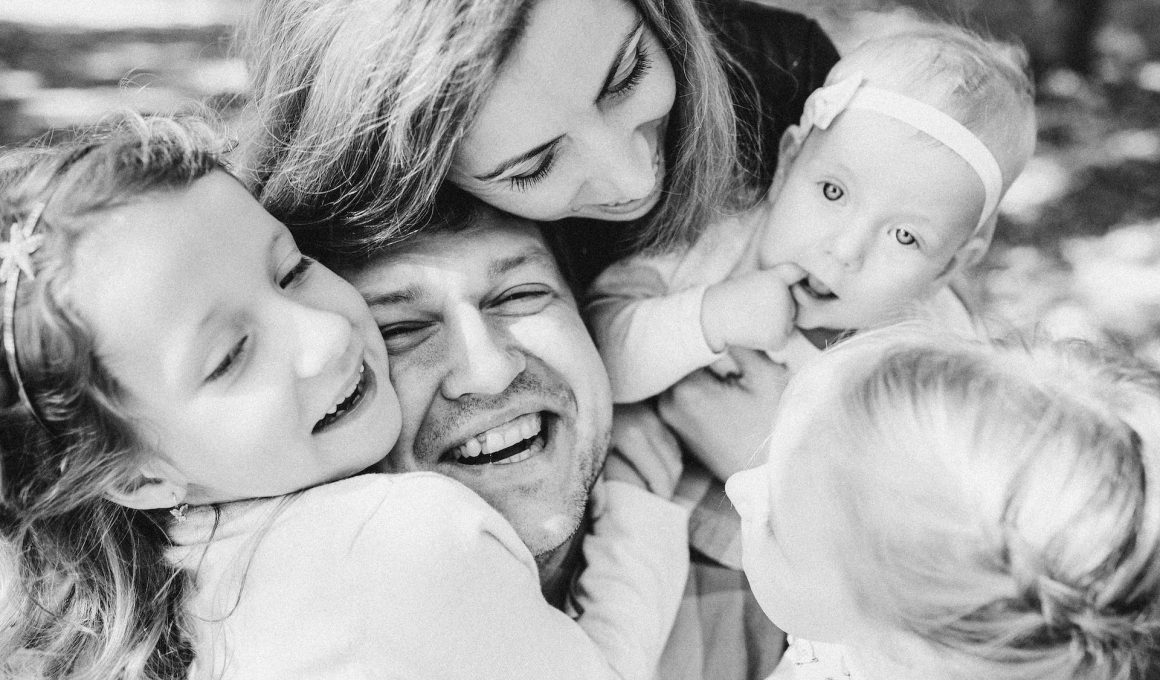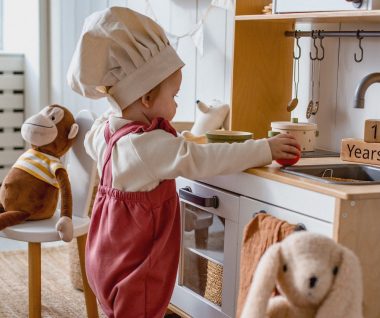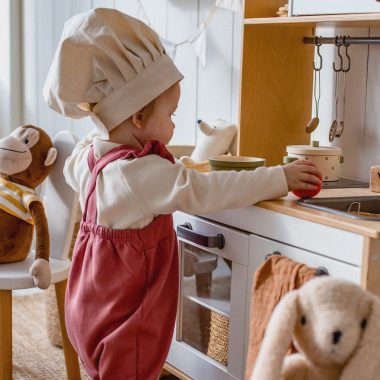Parenting is a full-time job, and many parents naturally prioritize their family’s well-being and needs before their own. However, mental health experts unanimously agree that if you want to be a better parent you should start by taking care of yourself.
But what is self-care? Are self-indulgence and self-care the same?
No. They are different, but many people treat self-care as a synonym for self-indulgence. Images of eating bonbons in a bubble bath or taking walks on the beach might be visualized, but those are far from accurate.
Self-care is any action you do to improve your health. According to the National Institute of Mental Illness (NAMI), all self-care habits fall under the following six umbrella categories:
- Physical
- Psychological
- Emotional
- Spiritual
- Social
- Professional
Brushing your teeth, eating balanced and healthy meals, getting regular exercise, or taking medication for a physical or mental illness are examples of self care habits. All of these fall under one of the above categories and they can help you feel your best, so you can accomplish all that you need to do.
When parents practice self-care, their mental health improves and their levels of fatigue decrease. These improvements might consequently lead to the increased use of positive parenting strategies, which then lead to better outcomes for children.
Parents often focus so much on their children that they have no time for themselves. But when you take time to care for yourself every day, you’re looking out for your loved ones just as much as you are caring for yourself.
According to a research, parents who practiced self-care were more confident in their parenting role than parents who did not. And parents who were self-critical were less confident in their parenting role than parents who were less self-critical.
Always remember that when parents are able to meet their own mental and physical needs, it not only benefits their well-being, but their children’s as well. Here’s an analogy which you must have heard hundreds of times before to help you understand the situation better: Put on your oxygen mask before helping others.
We know that doing that with a baby in one arm and/or with other kids around who are in need of your care, won’t be that easy. But we are here to remind you of yourself and your needs.
Below you will find 13 real simple and effective self care strategies that can help you renew your energy, strengthen your relationships and be more compassionate towards yourself.
Try to integrate regular self-care strategies into your daily routine.
Always remember that the times when you’re thinking you don’t have time to take care of yourself are likely the times when you need to practice self-care the most.
1. Take care of your physical health
The most basic components of self-care are:
- Eating a healthy diet.
- Getting seven to eight hours of sleep each night.
- Doing regular exercise.
These are also among the most important basic needs of anyone. Healthy food gives you energy. Sleep enables the body to repair, getting rest and preparing for another day. Regular exercise improves circulation, boosts the immune system and makes you feel good.
2. Listen to music
Listening to music can be a great way of taking care of yourself.
You can listen to music anywhere and when you are doing anything. You do not need to set aside a special time for music.
According to a research listening to music can
- Reduce anxiety.
- Decrease blood pressure.
- Depress pain.
- Improve sleep quality and mood.
- Support memory.
3. Meditate
Meditating sounds daunting at first. But in truth, to begin meditating, you just need 5 minutes.
If you are new to meditation, guided meditation might be a good place to start. There are many apps, websites, and audio files that can help you through the steps of meditation.
Also breathing exercises can help you surf through the challenges of life and reduce stress. Just a couple of minutes might be enough to calm your mind and body.
4. Spend time in nature
Studies have shown that being in nature has a positive effect on our bodies by reducing cortisol levels, muscle tension, and demands on our cardiovascular systems (lowers heart rate and blood pressure). Being out in nature often may lead to lower rates of heart disease.
Nature also boosts endorphin levels and dopamine production, which promotes happiness.
So a quick walk in a park, a hike on a trail, or spending some time in a garden can be great to:
- Improve your mood.
- Reduce feelings of stress or anger.
- Feel more relaxed.
- Improve your physical health.
- Improve confidence and self-esteem.
- Be more active.
- Meet new people.
5. Go through the motions
Feelings, thoughts and behaviors are connected. This means that a healthy habit starts to change emotions, thoughts and beliefs. This is amazing.
Taking a shower, going for a walk, exercising for 10 minutes, doing yoga for a couple of minutes might end up making you feel a little bit happier.
Experts share that whether you are pushing a stroller or walking on your own, get your body moving for 20 minutes. A little extra activity might help you feel energized.
6. Spend some time with friends or family
Our well-being relies on intimate social connections. Social connections provide us with an essential sense of identity and help us learn skills necessary to thrive in a complex world.
It is an integral part of self-care.
Social connections can
- Lighten your mood and make you feel happier.
- Lower the risk of dementia.
- Promote a sense of safety, belonging and security.
- Allow you to confide in others and let others confide in you.
But it can be hard to find time to see friends and some family members when you have a baby.
To stay connected and socialize you can ask for help. Partners might give room to each other to meet friends and family besides socializing as a family. You can ask a friend, a neighbor, family elder or your sibling if you have to care for your baby.
Another way of socializing is doing things that help you stay connected with other adults. Below are some examples:
- Have a lunch with your neighbor (sometimes at home or outside when your baby is with you.)
- Get your nails done with your friends.
- Have a walk in the park with your favorite family member.
- Invite a friend to your home to have tea time together.
7. Give yourself some time to be alone
It’s important to give yourself a few minutes of alone time.
Even if it’s just five minutes each day that you set aside to relax by yourself, a little solitude might help you unwind.
Whether that means waiting until your child takes a nap or waiting until a friend or family member is caring for your child, give yourself permission to charge your batteries with a little alone time.
8. Write in a gratitude journal
According to studies, people who keep gratitude journals sleep longer and experience higher quality sleep.
Writing in a gratitude journal takes only a few minutes. Before you go to sleep, write down 3 things you’re thankful for. They don’t have to be complex things. You can be thankful for simple things like a sunny day, a smile, a chat with a friend. These are simple but beautiful aspects of life.
This way you will remind yourself of the things you have to be grateful for and they can help you feel good about life, especially during times when that seems to be tough.
9. Spend a little on yourself
It is always easier to spend your money on your kids and neglect yourself. But showing your kids that you value your needs and necessities is also important.
Set aside a little budget each month and give yourself permission to spend on yourself.
You can,
- Buy yourself new clothes.
- Get new books and magazines.
- Get a new haircut.
- Just do something nice for yourself.
10. Practice mindfulness
According to studies, mindfulness practices may help you manage stress, cope better with illnesses, improve sleep and reduce anxiety and depression. They can even increase your overall happiness.
This is because a daily mindfulness practice can help you become more present. Rather than replaying something in your mind that happened yesterday or worrying about what might happen later today, living in the moment will help you enjoy what’s right in front of you now.
11. Take a break from electronics
Scrolling through social media, surfing the internet, and binge-watching TV might seem like a good way to relax your mind. But it’s not. These activities might sometimes cause more stress than they relieve.
A digital detox might help you reset some of your habits and is also a good example for your kids.
So, try to
- Unplug your device for an hour every night.
- Set aside one weekend a month to step away from your smartphone.
- Make a rule to keep your phone out of your bedroom.
12. Join a book club
A book club can serve several purposes. Joining a book club, either in-person or online,
- Helps you socially connect.
- Motivates you to set aside time to read.
- Broadens your horizons.
- Gives you the chance to hear new perspectives.
You can always start your own book club, too. You can gather some of your friends every week and discuss a book of the group’s choice.
13. Turn your bedroom into a retreat
A good way of taking care of yourself is creating a special place for yourself. Your bedroom might be a good choice. You can turn your bedroom into a retreat that you like to spend time in.
To feel relaxed in the room you can,
- Declutter your space.
- Buy some comfortable sheets.
- Have some decorative cushions.
- Try a new paint on the walls.
- Decorate the room with colorful candles and some new paintings.
Investing some time into making your room a retreat can ensure you will have a comfortable place to unwind at the end of the day.
References: psychologytoday.com, raisingchildren.net.au, waterford.org, parentingrcorg.au, health.clevelandclinic.org, verywellfamily.com, healthline.com, hopkinsmedicine.org










